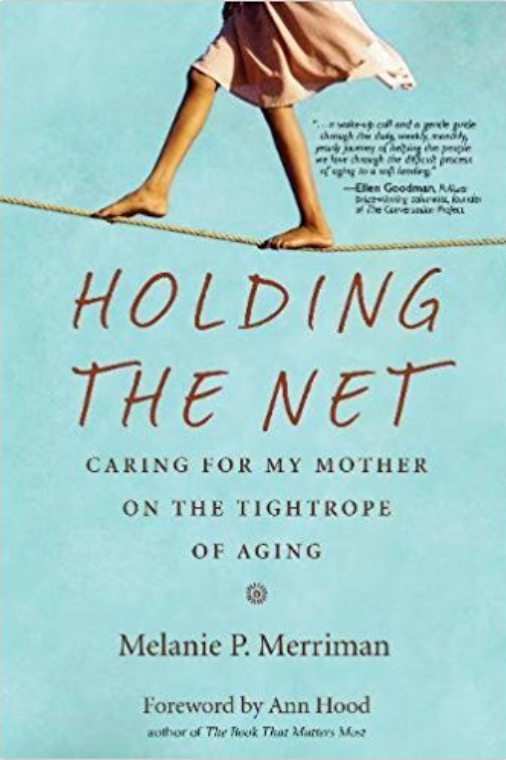By Karen Collazo
As I passed the threshold into The Orchid Recovery Center, I braced myself for an environment that would contain hostility, anger and – most importantly, women I could not relate to. During my stay at the detox facility I had convinced myself that I was in for a very odd experience; one that would no doubt provide tons of stories to tell at dinner parties, but nothing like the positive life changing journey that was about to take place. Over the next two weeks, I lived with a group of twenty women who seamlessly took to their position in the social order, followed firm rules and maintained a very strict schedule. In that cocoon, we learned about ourselves, grew fond of each other and healed some of our wounds.
Orchid is comprised of two facilities. There’s the main office on the top floor of a 4-story building. This is where we spent most of our days, being split up and shuffled from one room to the next for: group therapy sessions, acupuncture, art therapy and one-on-one meetings with our individual therapists. It’s designed with a comfortable and soothing aesthetic in mind. Near the entrance there is a large bamboo plant. As you walk down the halls you feel the healing energies of the space and the people. The walls are painted in a muted mustard-tone and are tastefully dressed with inspirational quotes. The furniture throughout is dark cherry wood and you can find Hindu statues, Asian Zen décor and orchid flowers adorning the tables. The couches are soft, comfy and red.
The second facility is the apartment complex. Orchid owns an entire 2-story building, which includes: 18 one and two-bedroom apartments, two laundry rooms, a TV room, outdoor seating, a grill and a pool. Each apartment is simple and contains all your basic furnishings, appliances and kitchenware. They each feature ample living space, closets and bathrooms, and are all decorated the same. Apartments are supposed to be kept tidy, with beds always made and all personal items in their respective drawers or put away in the cupboards. Women, who stay for long periods of time, tend to put up pictures of friends and family to make the place feel homier. You’ll typically find loved ones taped to mirrors. If on Saturday you had a few dollars leftover from your grocery run to Publix, you might splurge on some flowers for your place.
The day started promptly at 7am. This was when prescribed medicines were distributed under supervision from a tech that stood on the other side of a glass window, in one of the apartments that had been setup as a small office/ storage space. Meds were handed out daily until 8:30am. If you had packed perfume or hairspray with your belongings, this was kept in a locker and you had to ask for it every morning. The techs supervised the use of these items as well. As the women gathered by the gated entrance, the staff would quickly check each apartment to ensure all maintenance procedures had been followed. More often than not, there was a dirty dish left in a sink or a bed was unmade. This would hold up the entire group and we would all wait patiently as the woman in question returned to her apartment to take care of whatever mess had been left behind. Then we’d all board the bus to head over to the office.
The two facilities are only five minutes apart, but the ride goes through a sketchy neighborhood. Every morning we were greeted by a despondent homeless man standing at the entrance of I-95 asking for change. Promptly at 9am, with all twenty of us sitting in a circle in the main room, we started the day with what was called “Goals and Gratefuls.” This was when all the women would go around the room and share where they were at in their recovery.
“Good morning ladies. My name is Karen and I’m an addict,” I’d say.
“Hi, Karen,” they said in unison.
“My drug of choice is cocaine and today I’m 12 days clean.”
Round of applause.
“Today, my goal is to not obsess over what time it is but to be here now, so that I can fully take in all the tools that are being provided. I am grateful for my family, friends and all of you ladies for helping me feel worthy of recovery. My defense mechanisms are rationalization, isolation and avoidance. Yesterday, I reached my goal of writing my life story, which I will be sharing later today.”
Once we’d all had our turn, we’d move on to participating in a group activity. We had a number of activities we engaged in. There was therapy, yoga, educational movies and classes on nutrition. At Noon we would get a lunch break. All twenty of us would return to the apartment complex in the white vans. An hour later, we were back at the office for our afternoon activities and sessions. At 5pm, we returned to the apartments for the evening and were allowed to relax and use the phone for two hours. If for some reason you broke a rule, your phone privileges were the first thing to be revoked. The day ended at 8pm with another round of “Goals and Gratefuls.”
“Hi, I’m Karen and I’m an addict.”
“Hi, Karen.”
“My drug of choice is cocaine and today I’m 12 days clean.
Round of applause.
“Today, I did not reach my goal since instead of looking at the clock I just went around asking everyone for the time.”
The room erupts in laughter.
“I’m grateful for Orchid, the techs who bought me cigarettes and my clean time. My goal for tomorrow is to stop judging everyone and focus on myself.”
On my first day, I was assigned a big sister. Your big sister is a fellow female addict who takes you under their wing to show you the ropes. My big sister happened to also be the matriarch of the group. She was known among the women as Mother Mary. She was very dedicated to the program and had a laser focus on winning back her family’s love and respect by completing a 30-day program. Every Sunday, my big sister took care of coordinating family potluck dinners with the girls and was a natural at policing the gossip that unsurprisingly took place among the women. Mother Mary was a former 911 operator and a current badass with short red hair, that had purple streaks in it, tasteful tattoos sprinkled all over and numerous piercings. Her DOC (drug of choice) was alcohol.
My roommate was the only other Hispanic-American in the program. She was an older professional from South America who had enjoyed a successful career in the field of psychology for 30+ years. Her accent was thick and she had long and curly blonde hair that she carried around like a crown. Every morning she would take special care to wash her hair and condition it and always wore it down. It was her pride and joy. My roommate and I connected like mother and daughter. We both shared an addiction to sugary treats and on our trips to Publix made sure to stock up on cookies, candy, ice cream and cake. We’d sit on the L-shaped couch in our living room, watching TV and devouring snacks, until it was time to go to bed. When you’re recovering from a drug addiction, you naturally replace drugs with food. She was intelligent and insightful and really believed that I was going to make it. As soon as we met, I let my guard down. It fell off like a chain-link cloak and remained gathered where I left it for the duration of my stay at Orchid. Her DOC was Xanax.
A few nights in, after dinner with my roommate, I made my way down to the poolside tables for a cigarette. I sat there thinking about the revelations I had made that day during therapy. I had learned that most addicts believed themselves to be unique, but we were not. We might be special, but were no different than one another. For the first time in my life, I could be Karen not just one side or aspect of her, because these women knew how I felt. They were like me. It was liberating. And when the women accepted me with open arms, it felt like home. Regardless of socio-economic background, educational level or race, we were all the same: individuals looking for love who at some point turned to drugs when we didn’t find it. I connected with each and every one of those women on a spiritual level that I could never fully put into words. Each one of us was a candle whose flame was slowly withering into defeated embers. Coming together turned the gas on high and reignited our value in the world.
While I sat there, I was joined by Jessica; she was in her early 20’s and from New Jersey, the heroin capital of the country. Jessica introduced herself and told me all about her passion for music and the influence it had in helping her through her brother’s recent death. She had dark blue eyes, olive skin and the goofiest laugh. She had been through rehab before and had ended up in a flop house in South Florida. A flop house is a halfway house that has been neglected. There is typically very little supervision taking place and a lot of drug abuse. A halfway house or sober living house that is well-managed is where recovering addicts transition into life after rehab, by learning the skills necessary to integrate back into society. Halfway houses usually have rules and curfews, with 24-hour staff coverage. According to Jessica, there was a flop house epidemic in Florida and she and her brother had been victims of this horrible growing trend.
A few months earlier, while both of them were trying to get their lives on track, her brother gave in to the disease and started using heroin again. One night, he overdosed and no one was there to help him. When the medics finally arrived, they didn’t bother to give him Naloxone (a drug that can reverse the effects of opioids) and he unfortunately passed away. He was in his early 20’s. This triggered a downward spiral for Jessica, which led her back into treatment at Orchid. She was lost, lonely and upset. While sharing her story, I was deeply humbled by her experience. My heart caved under the weight of her tragic story. I reflected on the fact that while I’ve had my fair share of traumatic events, I was still lucky enough to have my sisters in my life. In that very moment, I looked up at the dark sky to gaze at the stars and thank the universe for this gift, when suddenly a shooting star broke through the atmosphere. It was the first shooting star I had ever seen.














